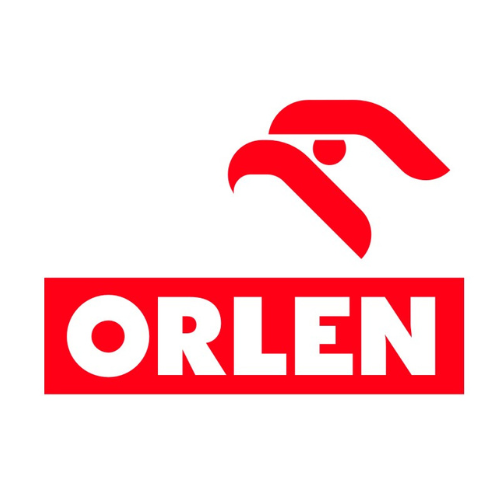
Data Governance
Services and solutions supporting the digital revolution

What Data Governance is:
- It is a set of policies, procedures and practices for managing data in an organization.
- Its implementation ensures the unambiguity, quality and security of data, as well as increases its business value and degree of use in decision-making processes.
- Data Governance helps achieve and maintain transparency in data management processes, including unambiguous accountability for them.
- Data Governance addresses aspects such as defining goals, establishing standards and processes, implementing tools and technologies, monitoring and evaluation.

Why do we need Data Governance?
- It ensures the unambiguity and quality of data: Data Governance sets standards and processes when collecting, storing, processing and using data. Implementing them positively impacts the quality of decision-making and the efficiency of the organization’s operations
- Increases data security: defining and implementing data security standards helps protect data from unauthorized access and loss, which consequently ensures the company is not exposed to financial penalties and loss of image.
- Increases confidence in data: with Data Governance, data is properly managed which makes it unambiguous and of high quality.
- Improves maintenance of regulatory compliance: Data Governance supports the conscious alignment of data management practices with regulatory requirements.
- Improves business decisions: with unambiguous, high-quality data, business decisions are based on a solid, transparent foundation.


- Financial and banking companies: due to legal and regulatory requirements and the need to secure customer and transaction data.
- Technology and telecommunications companies: due to the high volume and complexity of data and the need to use it in business operations.
- Medical and pharmaceutical companies: due to legal and regulatory requirements and the need to secure sensitive data.
- Any company that processes large amounts of data and wants to use it in its business operations.
Data Governance should be considered when an organization is ready to make informed decisions about its data in terms of that data’s quality, regulatory compliance, security, and efficiency of use.
- Improved data quality and integrity: Data Governance provides clear rules for data management, resulting in improved data quality and integrity.
- Improved decision-making processes: Data Governance helps to better understand and use data, which positively impacts decision-making processes.
- Improved communication and collaboration: Data Governance enables better understanding and collaboration between departments, which positively impacts business results.
- Improved efficiency of business operations: With governance based on clear and transparent rules and effective communication, companies can better use data to support business operations.
GDPR – Data Governance helps achieve compliance with data protection regulations thus minimizing the risk of financial penalties and reputational damage.
The answer depends on factors such as business needs, regulations and industry standards. In practice, the following are mostly addressed first:
- Customer and contact data – verifying and updating customer and contact information is crucial for executing processes such as sales and marketing.
- Product and service data – information about products and services should be up-to-date and reliable to ensure quality and regulatory compliance.
- Human resources data – employee information should be managed in a secure and regulatory compliant manner.
- Financial and accounting data – financial and accounting data are particularly sensitive and should be subject to special protection and management.
- Risk and security data – security and risk data should be managed effectively and in accordance with regulations to ensure protection against unwanted events and incidents.
- Board support: the board must give full support and commitment to the project.
- The right strategy: it must be in line with the company’s goals.
- Integrated team: the implementation should be carried out by a team consisting of representatives from different departments, including both business and IT.
- Knowledge and experience: it is important that the team has Data Governance knowledge and experience. If this is lacking, you should seriously consider reaching out for external help.
- Tools and technologies: implementation should be based on the right tools and technologies to support Data Governance.
- Lack of support from management and employees: Data Governance requires the involvement and cooperation of many departments and individuals in the organization. If there is no support from key players, the project may fail.
- Inadequately defined goal and strategy: Data Governance should be based on a clear strategy and goals that are in line with the organization’s aim and vision.
- Unclear and imprecise processes: Data Governance processes should be clearly and precisely defined to enable effective implementation and application.
- Lack of appropriate tools: With inadequate tools, there is a greater risk of ineffective processes, resulting in difficulties in data governance.
- Lack of data accountability: Data Governance requires a high culture of working with data. If that is not implemented and maintained, the risk of failure increases.
Implementing Data Governance is not an implementation of IT tools, nevertheless their use can significantly help the process. Good examples of such tools are:
- Metadata Management Systems (MDM): tools for storing, sharing and monitoring information about data, such as its definitions, relations, origin, quality and transformations.
- Data quality monitoring (DQM) tools: tools for measuring, monitoring and reporting data quality.
- Data access management (DAM) tools: management and control of user privileges.
- Risk management tools (DRM): to support the identification and assessment of data risks, as well as to plan and implement strategies to manage those risks.
- Business Intelligence (BI) tools: data analysis and reporting tools to help assess the maturity of Data Governance implementation.
Project Management (PM) tools: support the planning, conduct and control of Data Governance implementation.
- Data Governance supporting tools should be implemented when a Data Governance strategy is in place and data governance processes are established.
- The implementation of new tools should be done gradually, taking into account the key processes and data areas that should be covered by Data Governance.
- The implementation should be well planned and executed by a trained in-house team, with possible support from experienced external implementation partners. Ideally, the Manufacturer or its local Partners, if available.
The basic reasons are usually:
- Security: The tool should provide an adequate level of data security and protect against unauthorized access
- Functionality: Organizations are looking for tools that can fully support their data governance needs.
- Integration: The tool must be easy to integrate with existing systems and business processes.
- Flexibility: The tool should adapt to an organization’s changing needs and requirements without requiring a vendor or making changes that require programming (NoCode)
- Scalability: The tool should be scalable to support the organization’s growth and development.
- Support: Organizations are looking for tools that offer solid technical and content support, including user training and implementation consulting support. It’s best when the vendor has experience implementing Data Governance.
- Development plans: Organizations often look at development plans for the functionality offered by the system.
- References: Organizations pay attention to references and the extent of similar implementations in their native market, most preferably in their specific business segment.
- Price and licensing model: these are very important factors, often strongly influencing the decision. They should be appropriate to the scale of the business.

Piotr Nowak
Business Unit Manager
mobile: +48 504 144 812
e-mail: pnowak@valuetank.com




















